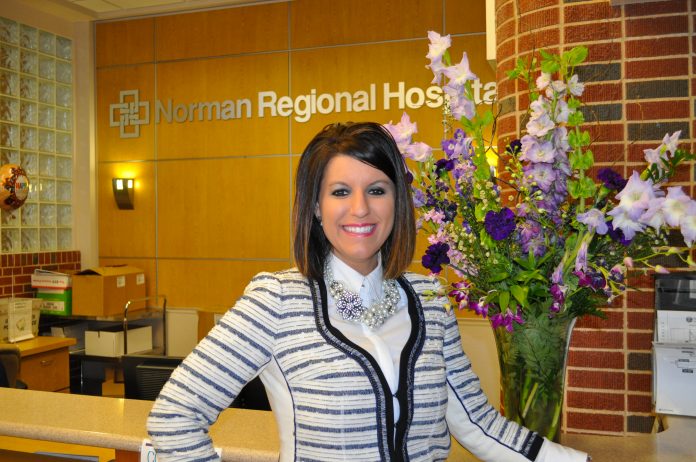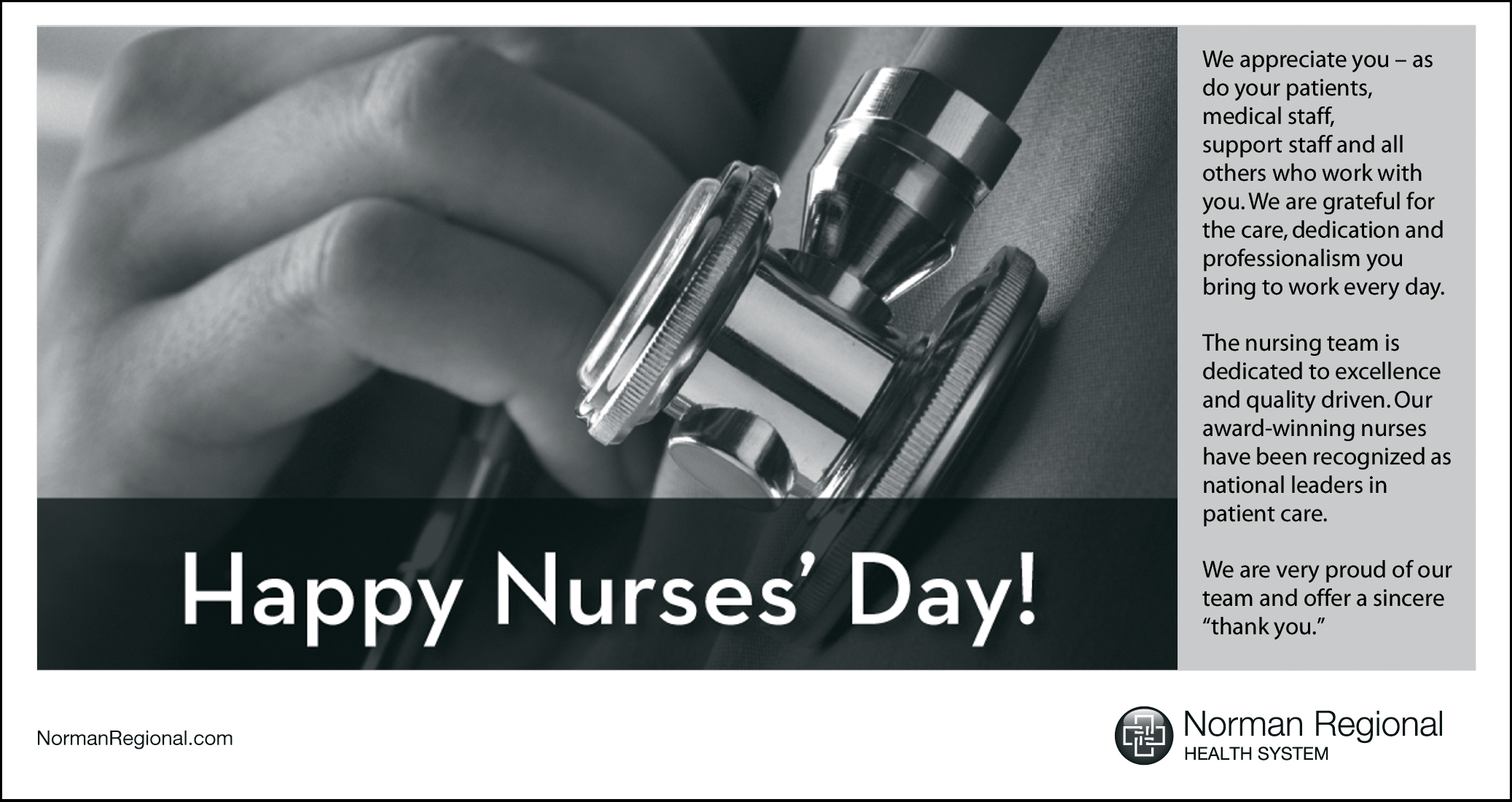
From the moment you dialed 911 with chest pain to the ensuing ambulance ride all the way through your cardiac intervention, hospital stay, and your eventual discharge, wouldn’t you want everyone along the way to be working for you?
Wouldn’t you demand it?
That’s the driving force behind Norman Regional Health System’s Cardiovascular Services. And it’s up to Brittni McGill, MSN, RN, CCRN, to make sure every department not only works together but works seamlessly to focus on the patient.
As Cardiovascular Service Line Director, McGill is at the forefront of Norman Regional’s battle against cardiovascular disease – Oklahoma’s No. 1 killer.
The eight-year NRH veteran began working at the hospital through a nurse externship program her senior year of nursing school. From there she found herself finding opportunity after opportunity at the municipal hospital.
“They were looking for someone to spearhead the vision and direct the future of all of our cardiology patients,” McGill said of her current role.
Heart disease is the number one cause of death in Oklahomans, both men and women.
In 2013 Norman Regional’s HealthPlex hospital was the first in the Oklahoma City metro to receive Chest Pain Center Accreditation from the Society of Cardiovascular Patient Care, an international organization that focuses on transforming cardiovascular care.
In order to be certified, hundreds of outcome measures and quality metrics must not only meet but exceed national standards.
Hospitals that have received SCPC accreditation have achieved a higher level of expertise in dealing with patients who arrive with symptoms of a heart attack. They emphasize the importance of standardized diagnostic and treatment programs that provide more efficient and effective evaluation as well as more appropriate and rapid treatment of patients with chest pain and other heart attack symptoms.
They also serve as a point of entry into the healthcare system to evaluate and treat other medical problems, and they help to promote a healthier lifestyle in an attempt to reduce the risk factors for heart attack.
Norman Regional’s HealthPlex has also received the 2016 Women’s Choice Award as one of America’s Best Hospitals for Heart Care. This evidence-based designation is the only heart care award that identifies the country’s best healthcare institutions based on criteria that considers female patient satisfaction, clinical excellence, and what women say they want from a hospital.
“There’s always opportunity to be better so the entire program encompasses quality and how you drive excellence in each of these areas,” McGill said.
To patients this means that processes are in place that meet strict criteria aimed at: · Reducing the time from onset of symptoms to diagnosis and treatment · Treating patients more quickly during the critical window of time when the integrity of the heart muscle can be preserved · Monitoring patients when it is not certain that they are having a heart attack to ensure that they are not sent home too quickly or needlessly admitted to the hospital
“There’s so much we can do for these patients and you want to be able to provide all the care and offer those services,” McGill said. “You have to be able to connect various areas within the system to respond.”
And the hospital turned to one of their top nurses to coordinate it all.
“Those things collectively require engagement, collaboration and teamwork,” McGill said, noting the health system is putting nurses at the forefront of the initiative. “Nurses are the fabric of who we are. “As a leader, it’s so important that we serve those that serve others.”
The initiative comes at a time when hospitals are being asked to take on an increased complexity of patient care.
McGill says the health system’s nursing leadership and administration has focused on a Triple Aim Initiative approach that revolves around increasing efficiencies, decreasing operating costs and enhancing the patient experience.
“I think it’s very important to have a clinician background, mindset and experience,” McGill said. “There are days where I wear my scrubs and do patient care. When you make decisions from a certain level it’s so important to know how they will impact front-line staff.
“Our people are our most prized asset and we need to invest our time in them.”













